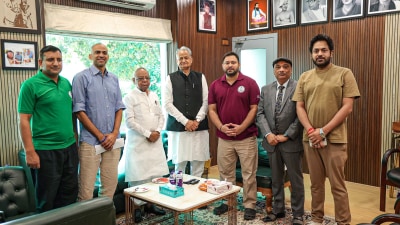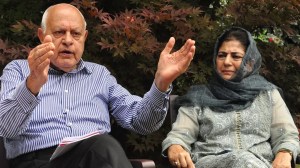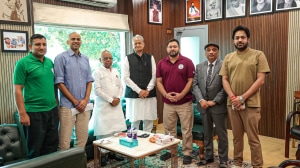Heard of a country called Abkhazia?
Fifteen years since its bloody war with Georgia, the breakaway republic of Abkhazia is a surreal spot where Soviet isolation lingers...

Fifteen years since its bloody war with Georgia, the breakaway republic of Abkhazia is a surreal spot where Soviet isolation lingers, the Cold War never ended and people cling to facades of statehood. It is a half-abandoned place of rusting ports and skeleton homes in a land that is recognised by nobody.
Now, with Russia and the United States engaged in a high-stakes power grab in the former Soviet Union, this forlorn sliver of lush beaches and snowy Caucasus mountains touching the Black Sea has emerged as a hub of new tensions between the Cold War enemies.
The ethnic-religious conflict between Georgia and Abkhazia was brutal on both sides. In the end, as ethnic Abkhazians emerged as victors, Georgians were driven out in an orgy of torture, rape and looting.
For Georgia, Abkhazia is an open wound and has vowed to bring Abkhazia back within its borders. Abkhazians swear it will never happen.
“God forbid!” said Tamara Ezugbaya, the mother of five sons, four of whom died fighting Georgia in the early 1990s war. Her sons died in quick succession, within six months, the first two in the same battle. “I don’t think a single Abkhazian will allow this, as long as they’re alive,” she said.
But Georgia is furious over Russian interference. Leaders have called for a boycott of the 2014 Winter Olympics in nearby Sochi if Abkhaz goods are used to build the sports facilities, and have also warned that any more Russian peacekeepers posted to Abkhazia would be seen as “an act of aggression against the Georgian state with all ensuing consequences,” a Foreign Ministry statement said.
Abkhazia has a flag, license plates, visas, border guards and the government. There is also a quixotic campaign to distribute Abkhaz passports. “They are not recognised elsewhere in the world, but inside the country they are very much in effect,” says a government official.
Abkhazia is a vast junkyard of collapsed structures and resurgent nature. Roads are dotted with the shells of homes. Staircases to nowhere rise from tangles of vine. Cows claim the right of way on roads, stepping among the bomb craters and puddles.
No international flights run in or out of Abkhazia these days; the only things taking off now are a United Nations helicopter, crop planes and the occasional flight to the mountains to drop off scientists or skiers.
The government says more than 200,000 people live in Abkhazia; most independent analysts believe the real number is lower. In any case, the official figure is less than half of the more than 500,000 people who lived in this then-thriving resort and citrus farming belt before the war erupted.
To the dismay of US-backed Georgia, which still considers Abkhazia to be part of it, Moscow has already distributed passports to nearly all the people here and encouraged them to vote in Russian elections. Tensions have ramped up in recent weeks, after Kosovo declared independence from Serbia, a traditional Russian ally. Moscow objected, warning Kosovo’s example would embolden other breakaway regions. Russia turned to Abkhazia to drive its point home. Moscow suddenly hinted that it might soon recognize Abkhazian independence.
But among leaders here, there is a lurking wariness of Russian motives. The powerful northern neighbour is more interested in territorial expansion than in Abkhaz independence, they fear, and may simply absorb Abkhazia.
Russia’s attachment to Abkhazia is both sentimental and strategic. Soviet-era vacations in the pristine mountains and on the balmy beaches of Abkhazia are still a fresh memory for many Russians.





- 01
- 02
- 03
- 04
- 05


























